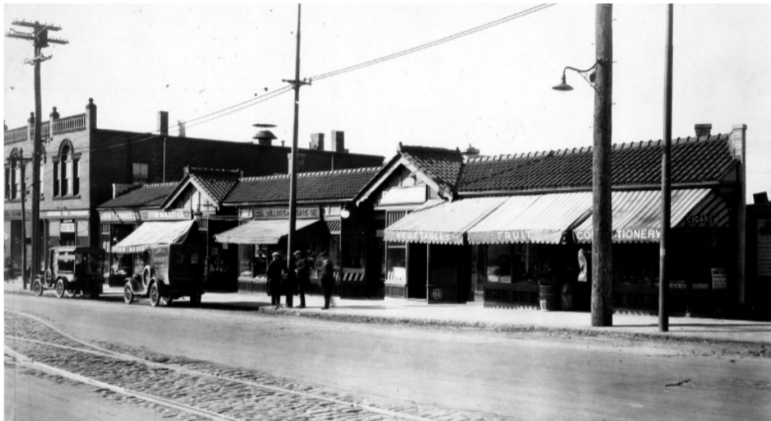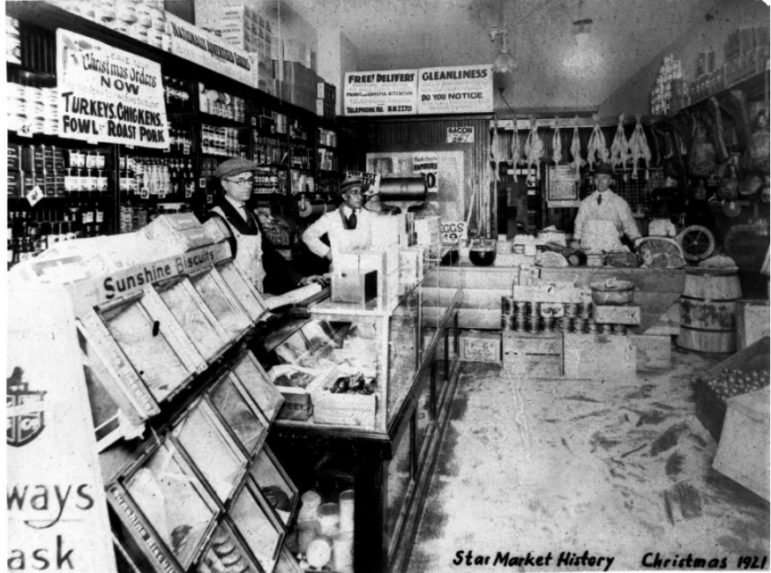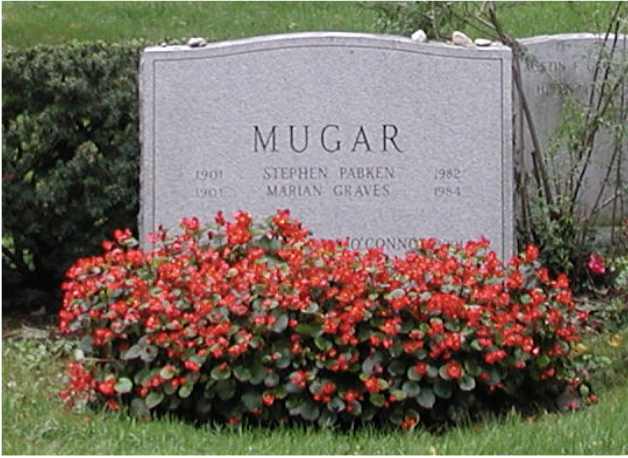
The following story is part of a series on local history provided by the Historical Society of Watertown. The article first appeared in the Historical Society’s July 2014 newsletter “The Town Crier.” The following information was presented by the late Pam Pinsky, former Vice President of the Historical Society of Watertown
In October of 2005 the Friends of Mount Auburn Cemetery and the Historical Society of Watertown joined together to give a guided tour of the gravesites of several notable people who once resided in Watertown. The lives of our Watertown notables were recalled by members of the Historical Society Council and Historical Society volunteers.
When you go to the supermarket, you buy meat that is pre-packaged in shrink wrap; your onions come in mesh string bags; items are unit-priced (e.g., a 13 ounce can of coffee is unit-priced per pound so that you can compare the value against other coffees packed in 12 ounce cans); when you check out, you can have your purchases packed in paper bags; and often times, your bags are put in boxes and sent out on conveyor belt. All of these innovations that we take for granted were developed by Stephen P. Mugar at 28 Mt. Auburn St., home of the original Star Market.
Stephen P. derMugardichian was born in Karpert, Armenia, and immigrated to this country as a very young child. In 1916, his father Sarkis Mugar (the family shortened their name) bought a small market at 28 Mt. Auburn St. and called it Star Market. The family lived on Bartlett Street at the top of Palfrey Hill. In 1922 Sarkis was killed in an automobile accident, and Stephen, along with his cousin John, took over the management of his father’s store. In 1932, he opened his second store in Newtonville, and in 1937 expanded to Wellesley. In 1948 they opened another store in Newtonville which was their first supermarket. Here, they used the earliest microwave in the store’s luncheonette.
Prior to this time, food markets were grocery stores, the mom & pop corner store, the meat market, produce stands. They were small, cozy, and provided personal attention; but most times you had to go to several stores to shop. Food was not pre-packaged, and you asked the butcher for a pound of lamb chops or ground beef. Life was slower then; you waited while the butcher selected the meat, sought your approval, then prepared it.

Over the years, the cousins developed the innovations mentioned above. Markets became self-serve, one-stop shopping, known as supermarkets. With DuPont, they developed pre-packaging for meats and fruits and vegetables, and the mesh string bags for onions. They worked with Union Paper Bag Co. to develop stronger & larger paper bags. Because of the Mugars, Massachusetts became the first state in the nation to mandate unit pricing.
For their employees, they had employee benefits like profit sharing and time off for school; in 1963 they were the first to build a store over the Mass. Pike.
Stephen was a great philanthropist. He loved books and gave generously to Boston University’s and Northeastern’s libraries. A building at the Fletcher School of Law and Diplomacy at Tufts is called Mugar Hall. The Armenian Library and Museum of America is called the Mugar Building. His son David is the primary force behind the annual Fourth of July concert and fireworks on the Esplanade.
The building at 28 Mt. Auburn St. still stands, physically unchanged.
